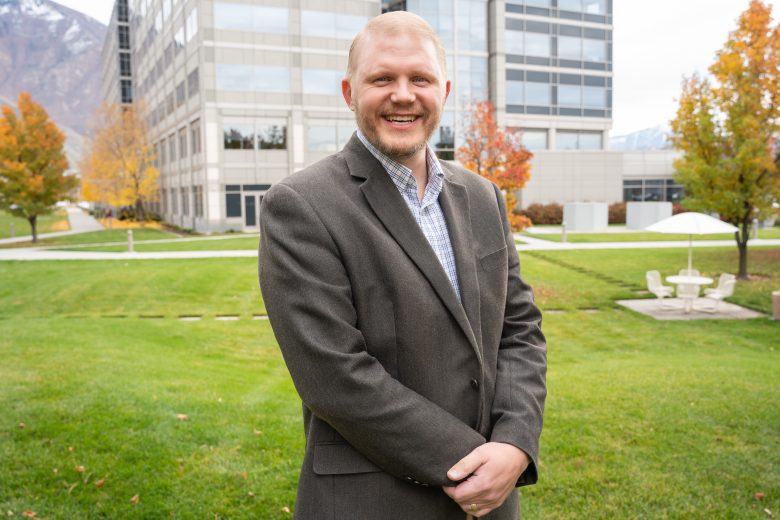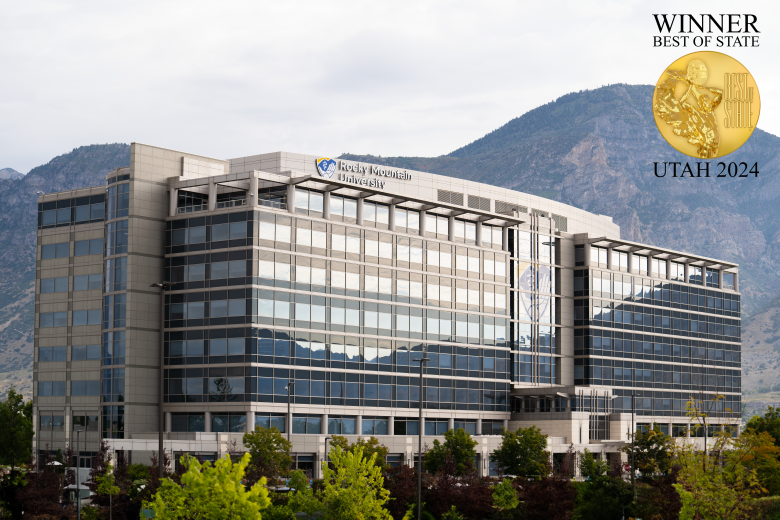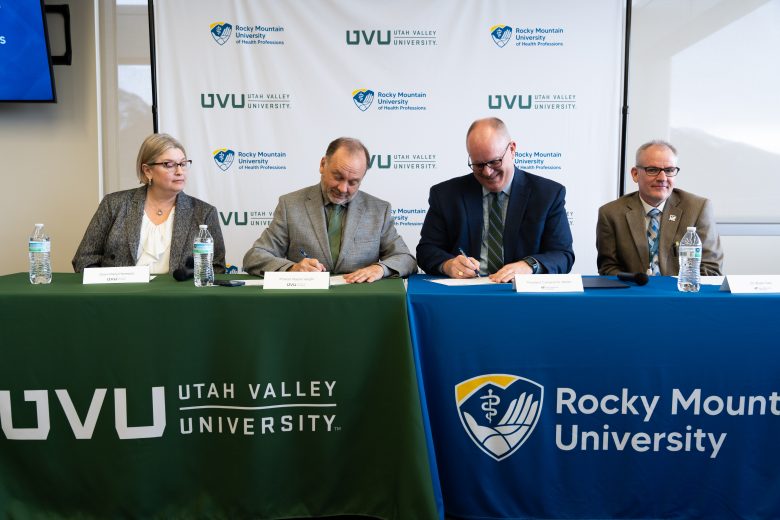The Learning Resource Center (LRC) is “the heart of the University. It is the repository of all light and knowledge,” says Karen Newmeyer, the Medical Librarian at Rocky Mountain University of Health Professions (RMUoHP). Newmeyer runs the LRC with the help of Ashley Bassett, the Associate Medical Librarian. Together, Newmeyer and Bassett help students and faculty members research, learn, evaluate, and utilize information from many sources. RMUoHP’s collection is primarily online resources, but also contains a print collection located on campus.
Newmeyer and Bassett are both well-educated and experts in the fields of library science. Newmeyer obtained both a Masters of Library Science (MLS) and a Doctor of Jurisprudence (JD). Bassett received a Master of Science in Psychology from Brigham Young University and a Masters of Library Science (MLS).
When asked what makes the LRC unique, Bassett says, “We are a smaller library—most of our collection is online and is very focused towards the health professions. I also like to think we are very student-centered.” Newmeyer adds that they “are available 24/7 365 days a year. Ashley and I check emails in the evening and on weekends. Students are often surprised to get a phone call response to their email questions on a Saturday evening.”
It is clear that both Newmeyer and Bassett have a passion for being librarians and the work they do. Karen says, “I really like the collegiality of all who work here. I’m given responsibilities and allowed my own creativity in finding the best solutions to challenges. I’m trusted to know my business. I really like that.”
“I think all librarians are service oriented. We are drawn to the profession by a combined love of order and using order to assist patrons. RMU students are very receptive to instruction on using library resources and are very appreciative of our efforts.”
– Karen Newmeyer
Over the past two years, the LRC has been able, with administrative support, to increase the online holdings from 2,000 to over 6,000 full-text journals. “We have branched out into educational and clinical support resources and included some anatomy resources for our students. We recently upgraded our online site to include resources specific to each program. By that, I mean that when a PA [student] logs into the website, they get resources tailored specifically to their program. Furthermore, they can customize their search panel to resources they particularly rely upon. Same for all programs currently offered,” Newmeyer says. Bassett adds that the university “now have an institutional subscription to EndNote,” a bibliography management software.
The librarians are looking into other resources that will assist students in their studies, like a book scanner. A book scanner copies book pages, correcting for the curve of the book and removing black edges. It can also convert text to MP3 files so that students can listen to the text on their mobile devices and read along. The LRC is also looking into augmented reality resources for student. Office space outside of the LRC is being converted into an augmented reality lab.
One of the current projects in the LRC is an official ADA testing Center, where students who need a tailored testing environment can go and take a test outside of the typical exam room. Nearby office space is being converted into a small testing center with a manager to supervise testing.
Even though the LRC is always coming up with new resources and ways to enhance university learning, Newmeyer and Bassett have enhanced the current offerings of the LRC and hope students are aware of those offerings. “We have a collaboration table, which allows for up to 4 students to plug in their laptops and screen share on a large split-screen monitor, says the librarians. They add, “We also have an Exchange Shelf, where Students can leave books, take books, or leave and take a book. These can be old textbooks or fun reading.”
In addition, the LRC offers stress relief: “We have great resources for that. You can work on an anatomy jigsaw puzzle, play chess, color in adult coloring books.” The LRC even has a Library Fish: Huckleberry Fin. He even has a Facebook page and anyone can be his friend. “We really want a library dog—come pet the dog during finals—but building policy says no,” Bassett says.
When asked what advice they would give students who don’t have experience using the LRC as a main resource for research, Bassett exclaims, “Call us! Email us! Use our new Book a Librarian feature on our website. We’ll send the student a Skype for Business link, and we can meet and share screens.” Newmeyer adds, “The Book a Librarian feature allows students and faculty to schedule a time to receive individualized tutoring and assistance with their research needs. Many undergraduates rely on Google to find answers to research questions. As author Neil Gaiman said, ‘Google can bring you back 100,000 answers. A librarian can bring you back the right one.’ Our mandate here is twofold: (1) to help faculty and students find the materials they need, and (2) to teach faculty and students research skills that they can use anytime, anywhere.”
Newmeyer and Bassett hope that the time that students and faculty spend in the LRC, using the resources there and talking with the librarians, fosters a desire for lifelong learning and sustainable research skills. Bassett states, “I would hope that [students] feel confident using our resources and are able to find what they need, and if they don’t, or have questions, that they remember to call us! I would also add that I wish everyone knew that we are here to help and aren’t bothered by questions. I enjoy helping students and faculty find what they need and/or develop the skills to find what they need.”



